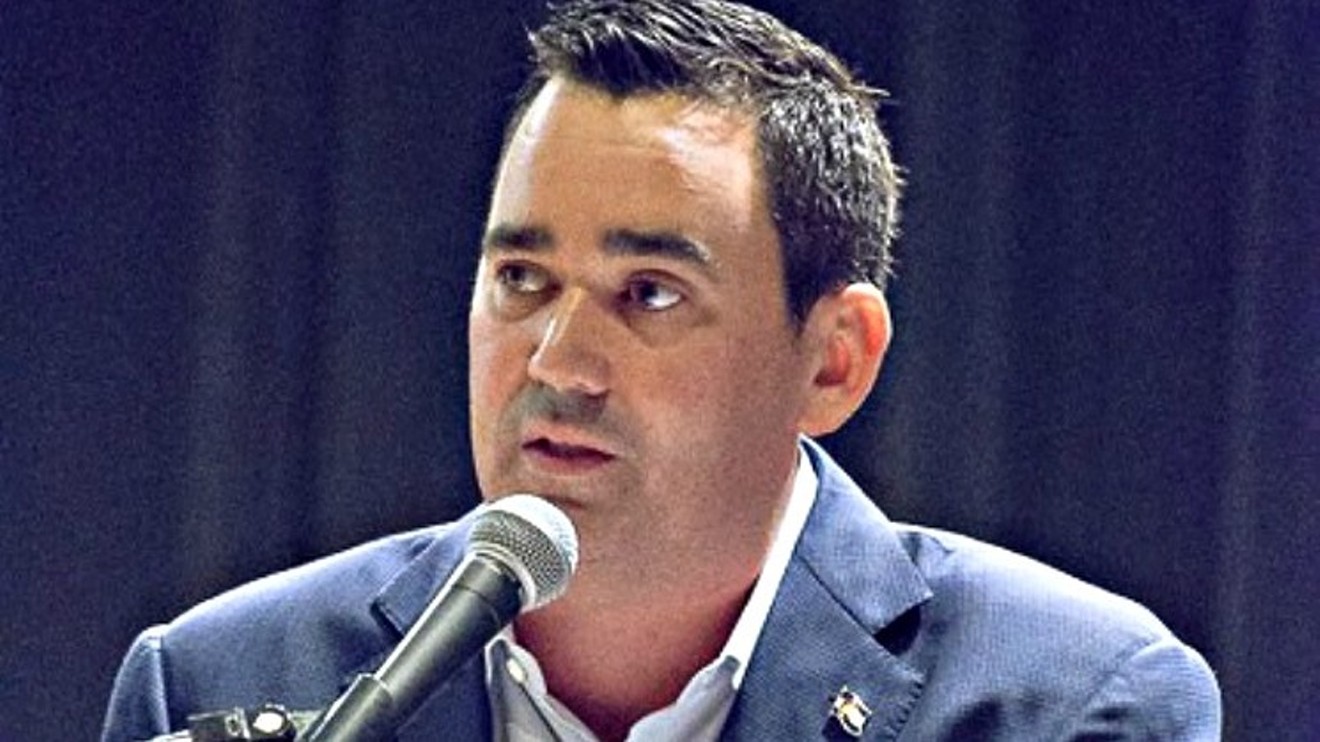Two months after Walker Stapleton skipped a legislative committee meeting discussing his office’s funding delays, the Colorado treasurer and Republican gubernatorial candidate this week finally signed off on $500 million in bonds for critical infrastructure and road-construction projects across the state.
But the money should have arrived nearly three months ago.
“The fact that it was a ninety-day delay put us to now where we just saw this week where [federal fund] interest rates have gone up. If it were issued ninety days ago, the work could have been starting today,” says Representative Daneya Esgar, a Pueblo Democrat and vice chair of the Colorado Legislature’s Capital Development Committee, which approved the infrastructure projects.
Of the half-billion dollars in bonds, about $120 million is dedicated to 98 critical infrastructure projects across the state, including a fire-alarm system at a prison, critical roof repairs at state colleges and security upgrades to mental-health facilities. The rest of the funding will go to state transportation projects, including the I-25 Gap project between Castle Rock and Colorado Springs.
News about the funding delay trickled out of Stapleton’s office in June, when legislators on the Capital Development Committee, which approves capital funding for all public agencies, were told that the money they were expecting from Senate Bill 267 to fund up to $1.8 billion in infrastructure projects wasn’t coming any time soon. The reason? A lawsuit that's been pending in the courts since 2015 could affect the state’s ability to repay those loans, and the treasurer’s office wasn’t going to issue bonds that could “negatively impact the credit of Colorado.”
The six-member Capital Development Committee dedicated a July meeting to Stapleton’s funding delays and even invited him to answer legislators’ questions. But Stapleton sent a surrogate instead. It was at this meeting, nearly a month after announcing the delays, that the treasurer’s office communicated to legislators for the first time a specific date – September 26 – when bonds would be sold.
“It’s not so much an issue of legislators not being told. Yes, we should be in the loop, but it was the fact that people on the ground in our communities who need to start these important projects weren’t sure, either,” Esgar says. “That was the part I felt was a mistake on the treasurer’s office when it comes to communication.”
A ninety-day delay in funding may not seem like much, but it could cost the state more in borrower fees over the twenty-year repayment period because federal interest rates have gone up by about a quarter of a percentage point since July.
“We’re in a rising-interest-rate environment,” says Representative Chris Hansen, a Denver Democrat on the Capital Development Committee. “These agencies are able to plan around [the delay], but it is a real impact. Is it super-serious in most of the cases? Probably not; they can manage it. Many of these projects have waited for years to get funded. … I think the most important impact is the millions of extra dollars that they’re going to pay because of rising interest rates.”
Stapleton didn’t return requests for comment, but in previous public statements, he attributed the delays to his office firing and replacing its bond attorney, a process that took about two months. He and Deputy State Treasurer Ryan Parsell have also attempted to minimize any concerns over the delay by pointing out that, technically, bonds could have been issued as late as next year.
“Why did it take sixty days to retain replacement bond counsel? No explanation, and that has led to these delays,” Hansen says. “Keep in mind the treasurer’s office has known about this transaction since May of 2017…so it’s not like this was some rush timeline. They have had lots of time to get this done, and they just didn’t get it done on time.”
SB 267, which authorized the transportation and infrastructure spending when it was passed in 2017, has been lumped into a legal challenge against the state by the TABOR Foundation. The lawsuit, filed in 2015, challenges the state's hospital provider fee, charging that it's actually a tax, not a fee. And under the Taxpayer Bill of Rights amendment to the Colorado Constitution that voters passed in 1992, all new taxes must go to a vote of the people. The hospital provider fee, however, was created by legislators in 2009 through statute alone, without a ballot question.
The Colorado Legislature doubled down on its position that the hospital provider fee is really a fee last year, when SB 267 exempted revenue generated by the fee from the constitutionally authorized tax-revenue limit.
By exempting the fee and creating a separate account for it, in these boom times Colorado can collect more taxes before it hits the constitutional-tax ceiling. (When that ceiling is reached, residents are eligible for a refund check from the state.) The legislature used the extra room in the budget to allocate up to $1.8 billion for roads and capital projects, including the $120 million for high-priority construction and maintenance.
The lawsuit is scheduled for a hearing in October.
[
{
"name": "Air - MediumRectangle - Inline Content - Mobile Display Size",
"component": "12017618",
"insertPoint": "2",
"requiredCountToDisplay": "2"
},{
"name": "Editor Picks",
"component": "17242653",
"insertPoint": "4",
"requiredCountToDisplay": "1"
},{
"name": "Inline Links",
"component": "18838239",
"insertPoint": "8th",
"startingPoint": 8,
"requiredCountToDisplay": "7",
"maxInsertions": 25
},{
"name": "Air - MediumRectangle - Combo - Inline Content",
"component": "17261320",
"insertPoint": "8th",
"startingPoint": 8,
"requiredCountToDisplay": "7",
"maxInsertions": 25
},{
"name": "Inline Links",
"component": "18838239",
"insertPoint": "8th",
"startingPoint": 12,
"requiredCountToDisplay": "11",
"maxInsertions": 25
},{
"name": "Air - Leaderboard Tower - Combo - Inline Content",
"component": "17261321",
"insertPoint": "8th",
"startingPoint": 12,
"requiredCountToDisplay": "11",
"maxInsertions": 25
}
]














